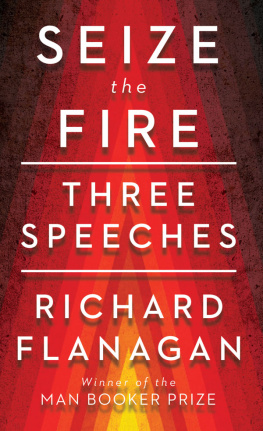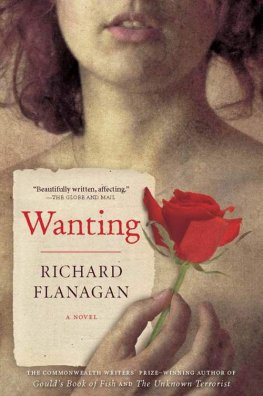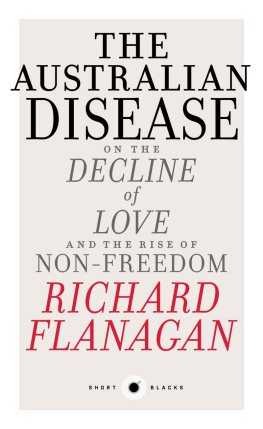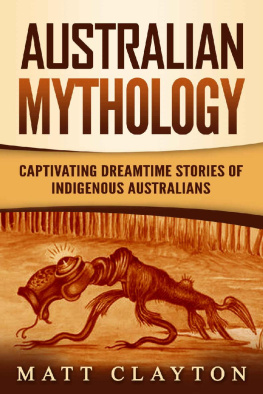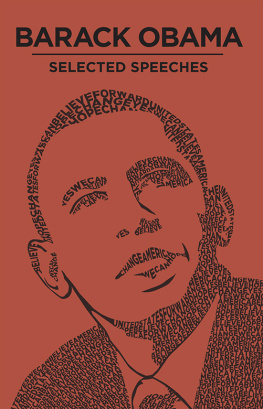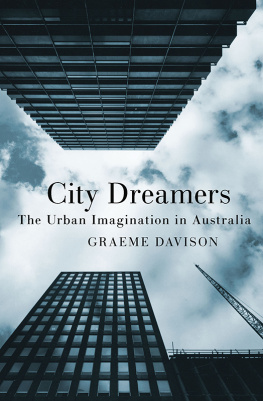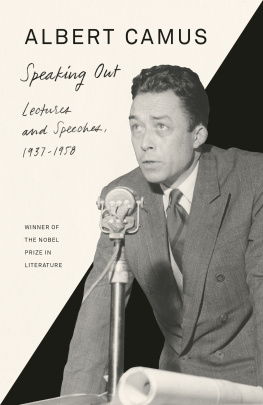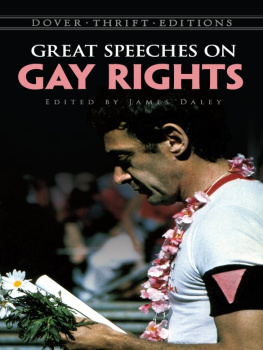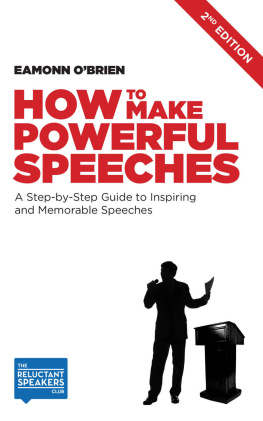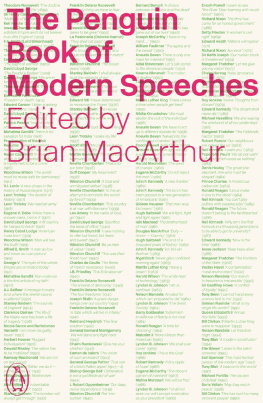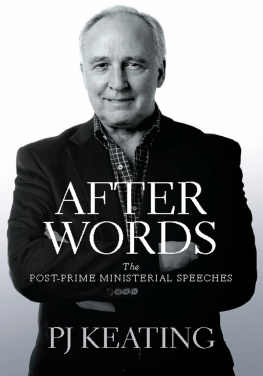Authors Note
Gathered here are three speeches I have made in recent years. Of a moment, they live or die with the crowd, for audiences are nervous creatures, easily startled, quick to unsettle, liable to stampede.
From the first word the audience must feel confident that they can relax, listen, think and dream. The audience must believe that the speaker will not embarrass them should they decide to laugh or cry or grow passionate; nor yet let them down, or confuse them by seeming to say one thing only for it to become apparent they mean the opposite, or possibly nothing much at all.
And to achieve this, to hold the crowd, in order not to bore, my speeches tend to be written the day and night and moments before being given, larded with the topical, from local sport to the days controversies and scandals.
For that reason I have chosen in this book not to rid these speeches of the marks of their making, the small change of topical jokes and allusions, as the words of each speech are finally a unity conceived and written as a whole and impossible to untangle without destroying something fundamental.
And it is that fundamental thing that I hope justifies the publication of these three speeches. But what is it?
This books title is taken from William Blakes poem The Tyger. It is his most famous and perhaps his most elusive poem. Who is the God, Blake appears to be asking, who could create, as well as the gentle lamb, the fearful tiger; the God who could seize the fire and transform it into the tigers burning eyes?
The poem seems to paradoxically answer that God is our ability to transmute horror by describing it, to transcend evil by framing the tigers fearful symmetry. Among the many attributes of such a God is the man who out of this fire creates such a poem.
More than ever we need to name our own dread tigers so that we can know them, in order that we might survive them, so that we might create something better from them.
There is, of course, an alternative.
But if these speeches have an argument it is this: allowing the fire to seize and devour us is no alternative at all.
It is we who must seize the fire.
On Love Stories and Reza Barati
CLOSING ADDRESS, PERTH WRITERS FESTIVAL, 23 FEBRUARY 2014
Hobart, I discovered flying here the other day, is a thousand kilometres more distant from Perth than Moscow is from London. Misunderstanding the significance of these sorts of distances accounts for a great deal of horror and defeat in human history. Such expanses of space between ambition and achievement have put a summary end to the ambitions of many of the great. Napoleon. Hitler. The Sydney Swans.
Admittedly, I havent come here with delusions of conquest, but only to deliver this closing address about love stories. But I am feeling the same sense of unease as Napoleon must have felt when, finally camped in Moscow, he saw the first flames leap up around the Kremlins fairytale onion domes. As Kieren Jack presumably felt at the beginning of the third quarter when something came between him and the sun. And it was Ryan Crowley.
There are several reasons for my unease.
Rainer Maria Rilke was admittedly not a Dockers tagger, but a sort of European equivalent, a German poetin many respects a charlatan masquerading as a genius who turned out to be a genius. He cultivated anyone he could sponge offwomen, the titled, the rich or, ideally, rich titled women. Once, according to an account from Kenneth Rexroth, Rilke was leaning gracefully against the mantelpiece in a castle in Switzerland while his devoted duchesses and countesses and other disciples were passionately discussing Goethes Faust , a discussion in which Rilke was taking no part whatsoever. One of them turned to him and asked, How do you feel about Faust , master? To which Rilke answered, I have never been able to read more than a page of it.
In truth, not unlike Rilke, there are many great books and great love stories that I have never been able to get past the first page of. And then there are even more I have never even started. And the more I read, the greater, I guess, grows the library of unread books. Of all the love stories ever published, I haverealisticallyread very few. My despair, then, in realising I had agreed to talk about love stories for some extended period was great. For I am no expert on love stories.
Then there is the matter of love itself; love, a word so trammelled by overuse as to be almost senseless. We like love, we love love, but perhaps its only meaning lies in its ubiquitous meaninglessness. We apprehend it, we feel it, and we think we know it, yet we cannot say what we mean by it. Like Elvis, its frequently sighted in unusual locationsthe Balga KFC, say, carrying several bags of half-eaten chicken nuggets, or the Mirrabooka Hungry Jacks leaning out of a beaten-up HiLux dual cabbut vanishes at the point at which we seek to authenticate it as real. We bury love under the rubble of other words and sentiments, deluding ourselves that such gravel is gravitas, to make it seem as if we do know what love means.
To give you but one example: St Pauls First Letter to the Corinthians, Chapter 13. Its justly famed and poetic evocation of love is perhaps the most popular biblical reading at contemporary wedding ceremonies.
Yet in the Greek original, the word that is commonly translated into English as the word love is the word agape (are-gar-pee). What agape meant in the ancient world is open to debateit was about love of spouse or family, and contrasted with the word and idea of philia , which suggested friendship, fraternity and so onand eros which was sexual attraction. The authors of the King James Bible, following the example of Wycliffes seminal English translation, chose the word charity as the correct translation of agape . What did St Paul really want us to think on our wedding days? That the best we could hope for was that our spouses might view us charitably?
Or, was what he was writing simply beautiful wordplay? Did it mean anything at all? What would happen if we substituted some other word for agape instead of love?
What would happen if it had been, say, a football coach writing to one of his teams sports scientists, under the excited misapprehension that agape was, in fact, classical Greek for training supplements used by the ancient Olympians, and offering the following new version of St Pauls letter?
Though I speak with the tongues of men and of angels and have not peptides, I am become as a sounding brass, or a tinkling cymbal. And though I have the gift of prophecy, and understand all mysteries, and all knowledge; and though I have all faith, so that I could remove mountains, and have not peptides, I am nothing. And though I bestow all my goods to feed the poor, and though I give my body to be burned, and have not peptides, it profiteth me nothing. Peptides suffereth long, and is kind; peptides envieth not; peptides vaunteth not itself, is not puffed up, doth not behave unseemly, seeketh not her own, is not easily provoked, thinketh no evil; rejoiceth not in iniquity, but rejoiceth in the truth; beareth all things, believeth all things, hopeth all things, endureth all things And now abideth faith, hope, peptides, these three; but the greatest of these is peptides.

